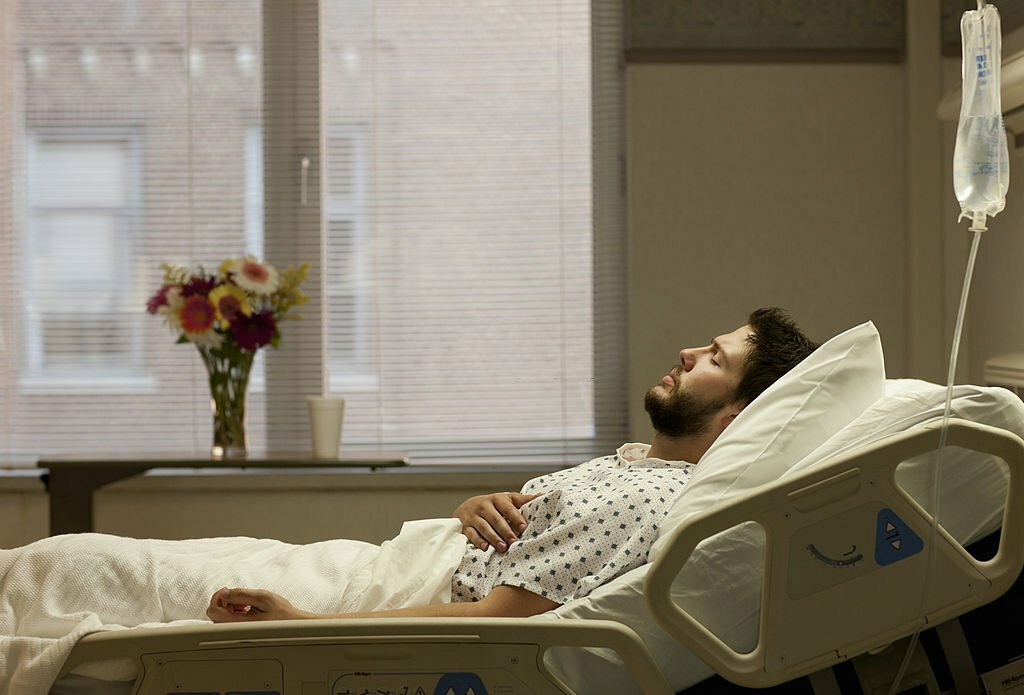
You've just undergone an endoscopy, a medical procedure to uncover the mysteries hidden within your body. Yet, as you sit there, perhaps with a hint of anxiety, you can't help but wonder about that unexpected companion the chest pain. It's a sensation that creeps in, perplexing you and seeking answers.
In this exploration, we will dissect why your chest might be aching after an endoscopy, unraveling the mystery and providing you with the insights you seek.
Is Chest Pain After Endoscopy Typical?
Chest pain after an endoscopy isn't widespread but can happen if the procedure's gas causes bloating. Sometimes, it might signal a problem like a hole in your digestive tract or an infection. If you have chest pain after an endoscopy, it's essential to see a doctor.
Dr. Santosh Sanagapalli, a specialist in stomach and esophagus issues, mentions that chest pain isn't a usual problem after upper GI endoscopy. More often, people experience discomfort after a colonoscopy because a lot of gas is used in that procedure.
After an endoscopy, you might feel some mild chest discomfort, but it usually improves within a few days. However, if the chest pain is severe, persists, or comes with other symptoms, it could be a sign of a severe problem.
Common side effects of the procedure include:
- A sore throat for 1-2 days.
- Temporary bloating or nausea.
- Temporary difficulty swallowing food
- Feeling groggy due to sedation.
If the doctor did a biopsy or removed a growth during the endoscopy, you might also experience slight bleeding from the site.
What Causes Chest Pain After Endoscopy?
Gas
During an endoscopy, doctors use carbon dioxide to expand the digestive tract. This gas can press on the diaphragm, leading to chest discomfort. Luckily, this discomfort usually goes away on its own in a few days.
Biopsies
If the doctors take a sample or remove a growth during the endoscopy, you might feel some mild pain or soreness at the site.
Infections
Although rare, endoscopies can sometimes lead to infections. These infections can be caused by bacteria already in your digestive tract, like Pseudomonas aeruginosa, Escherichia coli, or Salmonella enteritidis. Symptoms may include fever, nausea, and vomiting. Doctors can treat this with antibiotics or other medications.
Perforation
Perforation is a very uncommon complication where surgical tools or the endoscope accidentally make a hole in the digestive tract lining (only happening in about 0.019% of cases). This can be serious, as it may lead to severe infection if food or fluid leaks into other areas.
Symptoms of perforation includes fever, severe abdominal pain, vomiting blood, or dark, tarry stools, immediate medical attention is necessary and treatment might involves surgery to repair the hole and antibiotics to prevent infection .
Pericarditis
Pericarditis is inflammation around the heart, which can cause chest pain, it’s scarce, but there has been reported case in 2018 after endoscopy. Although this complication is uncommon, doctors should be aware of the possibility, Treatment may include high doses of aspirin or steroids.
Remember, while chest discomfort after an endoscopy can be concerning most of the time it’s not severe issue and tends to resolve on its own. However if experience severe symptoms or have doubts it’s always best to consult your healthcare provider fort proper guidance
How Long Does Chest Pain Last After An Endoscopy?
The duration of chest pain after an endoscopy can vary depending on its cause. If it's because of the gas used during the procedure, the pain is usually mild and should go away within a few days. However, if the chest pain is severe, lingers, or comes with other concerning symptoms, it could indicate a serious issue.
According to the University of Wisconsin Health, chest pain following an upper endoscopy should typically resolve within 24 hours. If it persists beyond this timeframe, seeking medical attention is advisable.
The Mayo Clinic provides further guidance, advising that you should promptly seek medical help if you experience any of the following symptoms after an endoscopy
- Chest pain that doesn't improve.
- Worsening abdominal Pain
- Ongoing difficulty swallowing
- Throat Pain
- Vomiting (if it contains blood )
- Bloody or Tarry Stools
- A Fever